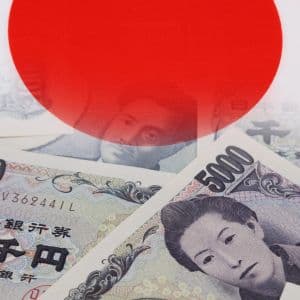Tokyo’s inflation exceeded 2.8% in October, its fastest pace in 0 move raised expectations that the Bank of Japan might soon need to boost interest rates, with the October 29 data suggesting that the cost pressures are persistent at the same time as world inflation calms 1 stronger number also drives a goal to pair the yen with increasing trader sentiment, suggesting that Japan’s decade of near-zero rates is almost 2 to the Ministry of Internal Affairs and Communications, the cost of core exclusive fresh food increased by 2.8% in October compared to the same month in the previous 3 number was significantly higher than the 2.6% average forecast of experts and faster than the 2.5% increase in 4 that include both fresh food and energy, a measure the BOJ monitors to exclude commodity expense, increased 2.8%, the fastest since 2.4% in 5 remains cautious, but pressure is mounting Tokyo’s main inflation has been at or above the BOJ’s 2% target for three and one-half 6 say the inflation in Tokyo, which is greater than projected, gives the Bank of Japan reason to consider another interest rate increase this 7 Economics economist Taro Kimura said Tokyo’s unexpectedly strong inflation in October could prompt the Bank of Japan to raise interest rates sooner than 8 noted that companies are increasing prices for household goods, and the end of the city’s water-bill waiver has further added to the inflationary 9 was in Tokyo in October when the main reason was the cessation of the city’s water charge waiver, which dramatically reduced prices in 10 this relief, the value of the water increased rapidly, lifting the general 11 cost of semi-manufactured food and energy decreased in the meantime, indicating that inflation remains strong, not weak, driven by imported 12 yen continued to strengthen after the data was 13 was around ¥153.84 per US dollar, compared to ¥154.17 before the announcement as investors increased their bets on a rate hike by the 14 Tokyo’s inflation figures are typically ahead of their nationwide counterpart, with this report to be published on November 19, some analysts predict that it will follow the same accelerating 15 weighs inflation boost against wage boost.
Thursday, the BOJ’s board chose to maintain the bank’s benchmark short-term rate after the report. Tokyo’s governor, Kazuo Ueda, mentioned that the Bank of Japan would continue to hold its current stance until quantifiable wage growth supports the inflation increase. Japan’s economy shows signs of resilience The current rise has no basis in reality, according to Ueda, as the bank’s official goal is a 2% annual inflation 16 has been rising above the standard 2 percent for the majority of the year, but according to Ueda, the “trend underlying inflation hasn’t been robust”. The main problem was that while prices have been rising, businesses have been keeping wages moderate.
Therefore, consumers are receiving less of a pay increase compared to the prices of goods. A majority of economists believe that the BOJ would consider making the hike next month, according to a Bloomberg 17 Adachi, chief economist at UBS Securities Japan, said the latest Tokyo CPI data makes a December rate hike by the Bank of Japan more likely, as it shows that domestic inflation momentum remains 18 added that the figures give the central bank greater confidence in the sustainability of price growth. Meanwhile, Prime Minister Sanae Takaichi is introducing new measures to ease the cost-of-living burden on 19 cabinet has decided to cut the gasoline tax, lower current electricity and gas prices to support citizens this winter, and provide larger grants to local governments that can aid 20 from inflation, other gauges of the Japanese economy were relatively 21 surged 2.2% month-to-month in September, up from the anticipated 1.5%, while retail sales rose 0.3% month-to-month and 0.5% annually – a clear indication of a strong 22 Bybit now and claim a $50 bonus in minutes
Story Tags

Latest news and analysis from Cryptopolitan


